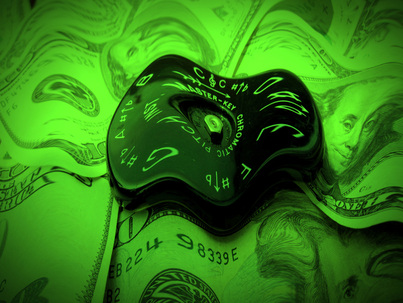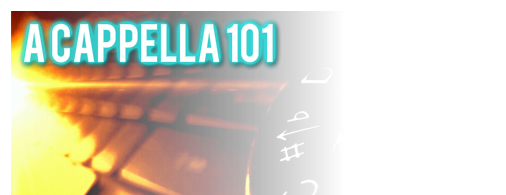
But is it legal?
It turns out the answer is "Only if ..."
Assuming you haven't actually contacted the copyright holders to negotiate a special license, here's a handy list for what you can and can't do with published, non-public domain songs, and the answer for exactly how to legally give music away for free:
You Co-wrote it. You Recorded It.
You can do whatever you want! Give yourself credit for being generous if you choose to give it away! Or charge any amount you like for a download or stream.
Someone Else Wrote it. You Recorded It.
Thankfully, you don't need permission, but...
You must pay the authors of the song for each copy, even if you give those copies away for free. According to the US copyright office, downloads require a payment of 9.1 cents or 1.75 cents per minute or fraction thereof of playing time, whichever is greater, even if you give the song away for free.
Ex: The original song is 3 minutes. Your version is 5 minutes and 1 second because you like things slow. You owe 10.5 cents per copy created, regardless of what you sell it for and regardless of whether you sell a digital download or a physical recording.
You can also usually offer to stream the song free "on demand" if you pay a small fee, and if the composer is a member of a composer's society like ASCAP, BMI or SESAC .
This is often more affordable if you plan to stream many songs which are all represented by one composers' society. For example 10,000 free streams of any songs where the composers are represented by ASCAP might cost around $350/year for a blanket license. By comparison, 10,000 "free" downloads of a typical length song will cost you at least $910.
The math gets trickier (because the prices change drastically) if you advertise on your site or charge anything for the streams or if you use works from more than one composer's society.
Because each society charges its own fee for a blanket license, you may find that downloads are more affordable than streams based on multiple blanket licenses. Also, you will usually pay (or calculate payment) per stream or per download. And this means that the fan who keeps hitting repeat on your streaming link is costing you money.
Someone Else Wrote It. Someone Else Recorded It.
You cannot give this away for free or for pay without permission. There is no compulsory license for someone else's recordings, only their compositions. You need a "master license" for the sound recording in addition to the separate compulsory license for the composition. A good place to start for licensing masters is at Sony.
YouTube, Regardless of Who Wrote or Recorded It.
YouTube lets artists know when videos which include their works are being uploaded. (They also have negotiated licenses with major recording labels.) YouTube gives artists the choice of whether to allow or disallow the video. Many artists choose to allow the video to stay up in exchange for the the publicity it helps create. When this permission is granted, this becomes the cheapest method to legally offer "free" music.
There are some dangers. You take a chance that the author will deny permission. You must do this through YouTube and subject to any ads they choose to place there. And your videos views are publicly available. This is a double-edged sword. If the views are low, this may hurt your reputation as a giant star. If the views are high, major industry players may take notice. While views do not translate to money directly, groups like Straight No Chaser and Voca People may fairly say they owe their careers to YouTube.
And there is a slim chance that the copyright holder could initiate a lawsuit directly against you for failing to negotiate a synch license (required for synching video to music). As a practical matter, this does not appear to be the way the major industry players are choosing to act. Most of the music industry has entered into some form of licensing with YouTube, and for most who haven't, the take-down power YouTube provides appears to be enough.
Other Online Sites That Let You Stream
The pro is that these sites usually take responsibility for paying any royalties which may be due. The con is that each site has any number of restrictions that often severely hamper what you're trying to achieve by sharing the music for free. The site may charge a fee, limit users or simply make accessing your stream inconvenient. Be sure to read the sites' terms to determine who is responsible for copyright content.
A Little Note About Arrangers' Legal Rights
As opposed to the composer, the arranger has no legal right to demand payment or deny permission, except in two situations:
1) The arrangement is of a song in the public domain; or
2) The arranger had the actual permission of at least one composer of the non-public domain song to make a licensed arrangement. In contemporary a cappella, both of those are relatively limited situations, but if they do occur, treat the arranger as a composer. Just remember that arranging a song in the public domain doesn't give the arranger rights to the song itself, just to their exact arrangement of the song.
Conclusion and a Plea
Giving away music helps the entire community, and it's often a great way to help yourself to some fantastic publicity. But more than telling you how to do this legally, I'm pleading with you to brag about being a good person!
Tell the world both that you are paying the rights and how you are paying the rights. Example:
"Click here for a Free Download of "SongX" performed by GroupY. All royalties paid by GroupY by arrangement with The Harry Fox Agency."
Or even better...
"Click here for a Free Download of "SongX" © in the composition by Joe Author and Jane Author. © in the recording by GroupY. Performed by GroupY. All royalties paid by GroupY by arrangement with The Harry Fox Agency."
This simple act teaches your audience that music is valuable. It helps all artists by dispelling the completely inaccurate, but utterly pervasive myth that "no charge = no rules". And it lets the world know just how much you support the arts and how generous you really are!

 RSS Feed
RSS Feed